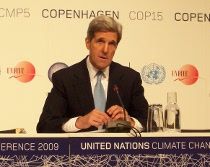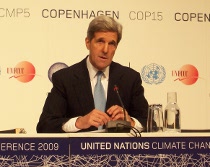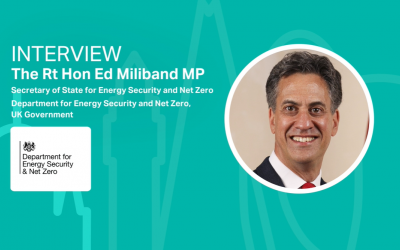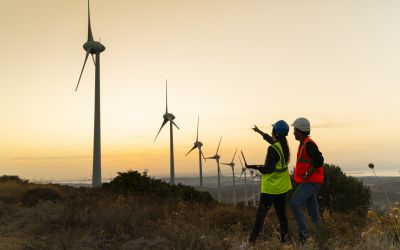The world looks to the US
The world is looking to the US to lead the way in climate change but with the current issues concerning their climate bill it looks like the US will fall short of expectations

 The world is looking to the US to lead the way in climate change but with the current issues concerning their climate bill it looks like the US will fall short of expectations. Although the Obama administration sees climate change as a key priority a lack of Republican support is jeopardising their efforts of creating an effective bill.
The world is looking to the US to lead the way in climate change but with the current issues concerning their climate bill it looks like the US will fall short of expectations. Although the Obama administration sees climate change as a key priority a lack of Republican support is jeopardising their efforts of creating an effective bill.
Last week the Global Climate Network (GCN), an alliance of nine influential think tanks from different countries, met in Washington to discuss the issues surrounding climate change legislation. Despite the prospect of the US passing a bill that caps carbon emissions, assists developing countries in their transition to a lower carbon economy and encourages the innovation of green technology is dwindling countries continue to look to the US for leadership in climate change. Senior Fellow at the Center for American Progress and GCN coordinator Andrew Light expresses the opinion that:
"No one will cooperate on a common solution unless the world's largest per capita emitter, the United States, gets in the game. We must demonstrate not only that we can reduce our emissions but also that we can contribute funds to a global effort that will mobilize sufficient private capital to get all parties pulling in the same direction toward success."
It is disappointing to many nations that the US is falling short of expectations. Their initial plan for a broad climate bill has diminished, only last week a big compromise has been made regarding carbon caps where regulations concerning manufacturers and transportation have been removed. Senator John Kerry is positive that a progressive climate bill will be achieved at some point in the future, he claims as long as he is in the Senate he will fight for a broader bill. It is the opinion of many, however, that until the US produces a satisfactory bill other countries will fail to perform as well as they could. Professor Jiahua Pan, director of the Research Centre for Sustainable Development at CASS in Beijing says:
"To spur a technological revolution we need a very strong signal from the U.S., which remains the world's biggest market. What matters to Beijing is a clear and unequivocal signal from Washington that the U.S. is serious; passing a climate bill in the Senate would go a long way toward sending that signal."
It will be easier for everyone if the US starts the ball rolling; it is a role model for the rest of the world to follow. If the US can continue to develop with green technology and fewer emissions it will inspire and other countries and prove that it is the way forward for the future. Andrew Pendleton, senior climate and energy fellow at the United Kingdom's Institute for Public Policy Research and coordinator of the GCN asserts that fossil fuels are the energy source of the past. It could also make striving for greener energy more economically feasible it the US took the lead, Dr. Arabinda Mishra, head of climate change at TERI in Delhi believes:
"If other big economies such as the U.S. were to exploit clean energy to the full, it would be cheaper for all of us. We have to limit carbon pollution globally and yet India and other developing countries cannot make enough of a difference unless there's strong leadership from the world's largest economy."
Author: Rachael Bristow | Climate Action
Image: UN Climate Change | Flickr






